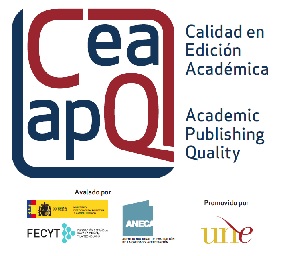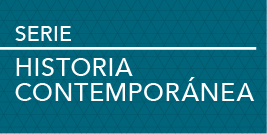Contemporary History Series
1. Series Guidelines
The Contemporary History series from the Editorial Service of the University of the Basque Country has collected research works since its inception. Most of them are focused on the Basque Country, but they are also not short of those from other geographical areas. The time-frame extends from the end of the 18th century to the time of the Spanish Transition and the topics comprise the different specialised areas of Contemporary History, added to as new historiographical subjects appear. Historical demography, the civil war, Basque nationalism, the economy, and social history are some of the fields that most of these publications cover.
2. Start date
1993
3. Director
Joseba Agirreazkuenaga Zigorraga
Professor of Contemporary History since 1995 with six 6-year terms of quality research (as well as “A2” qualification by the UPV/EHU Social Council). Principal researcher of the Biography/Parliament group, which received the highest rating (A+, 95 points) in the 2018 Basque Government Call (Social Science and Humanities area).
Joseba has directed 20 doctoral theses, 25 books (13 with members of his team and 12 as sole author), 92 book chapters and 83 articles in indexed research journals. He has 96 references published in Inguma (database of the Basque scientific community).
He was the first secretary of the journal Historia Contemporánea (1988-1997) and member of the editorial board of the journal Parliaments, Estates and Representation.
He was also a member of the UPV/EHU Editorial Service Board UPV/EHU (1987-1991), a member of the Basque language Commission (1994-2006) repeatedly chosen by the teaching body to be member of the university Research Commission.
For his complete Curriculum Vitae, see: http://www.prosoparlam.org
José María Portillo Valdés
Professor from the Department of Contemporary History at UPV/EHU.
He has taught at universities in Georgetown and Nevada (USA), the College of Mexico and the Mora Institute (Mexico), Externado (Colombia) and Santiago de Compostela.
He is a member of the HICOES (Constitutional History of Spain and America, University of Seville) and VIOPOL (Violence and Politics, University of the Basque Country) research groups.
He is author, of 'Crisis atlántica: autonomía e independencia en la crisis de la monarquía española', Madrid, Marcial Pons, 2006; 'Fuero Indio. La identidad territorial de la provincia india de Tlaxcala', the College of Mexico, 2014; 'Historia Mínima del Constitucionalismo en América Latina', the College of Mexico, 2016, among other works.
4. Scientific Committee
4.1. Members
- Mari Cruz Romeo, professor from the Contemporary History department at the University of Valencia
- Ester García Moscardó, professor from the Contemporary History department at the UNED
- Xosé Manoel Núñez-Seixas, professor from the Modern History department at the Ludwig-Maximilian University of Munich (Germany)
- Mercedes Arbaiza, professor from the Contemporary History department at UPV/EHU
- Unai Belaustegi, associate professor from the Contemporary History department at UPV/EHU
- Nerea Aresti Esteban, professor from the Contemporary History department at UPV/EHU
4.2. Functions
The main duty of the Contemporary History Series Scientific Committee is to advise the director in making decisions on the publication of works, as well as proposing external assessors.
5. Instructions for authors submitting original manuscripts
- Submission of publication proposals. Any person, from both UPV/EHU and outside of it, may submit a publication proposal, observing the general and specific requirements of the series and collections, described in the section entitled How to publish on the Editorial Service Website.
- The applicant must complete the series and collections form, and send it to the Editorial Service through the Editorial Registry (registro.editorial@ehu.eus), along with the original in an OpenOffice, Word or PDF format.
- The Editorial Service will acknowledge receipt of the proposal, stating whether the application is complete or lacks any document.
- Once the proposal has been approved, the technical management of the Editorial Service will require the authors of the necessary files to carry out the publication with, among other things, high quality images and graphs.
6. Information on the manuscript selection process
The submitted works are analysed by external assessors, in accordance with strict scientific quality criteria, and it will be the Editorial Service management that issues the final decision, keeping in mind the assessors' reports and on the recommendation of the management of the series or collection.
Stages of the process:
- The Editorial Service management will check that the proposed publication adheres to the Service's editorial policy, as covered in the Manual de Publicaciones del Servicio Editorial de la Universidad del País Vasco. (UPV/EHU Editorial Service Publications' Handbook). If this is the case, it will be sent to the series or collection management.
- The management of the series or collection, along with the corresponding scientific committee, will review the original and,if it is considered likely that it will be published, will then propose the persons to carry out the external assessment. In the event that the original is rejected, this will be communicated to the authors by the Editorial Service management.
- The Editorial Service management will contact the proposed assessors and, if they accept the assessment, they will be sent the originals once the author's name and affiliation have been removed, in order to ensure that it is double blind. The assessors will have two months to deliver their reports.
- Once the reports have been received, the Editorial Service management will send them to the the series or collection management who, in view of them and with the advice of the respective scientific committee, may decide to:
- Recommend publication of the original as it was submitted or, in any case, with any minor amendments that may be suggested by the assessors. The Editorial Service management will convey this to the author and technical management, so that they can begin the technical editing process.
- Require the authors to make the amendments requested or suggested by the assessors, indicating, where appropriate, the specific way of doing so and the deadline. The author may express their reasoned disagreement with those amendments in writing to the series or collection director. After the text has been received with the required amendments the series or collection management will verify that the author has applied the changes and, where appropriate, will send the document to the Editorial Service. Should it be considered that the text still does not contain the recommendations from the reports, a final request will be made to the author.
- Request a new assessment. In the event that this is deemed appropriate, the management of the series or collection, with the advice of the scientific committee thereof, will request a report from a new assessor through the Editorial Service.
- Recommend the non-publication of the proposal. In this case the Editorial Service will issue and convey an explanation of the decision to the author.


